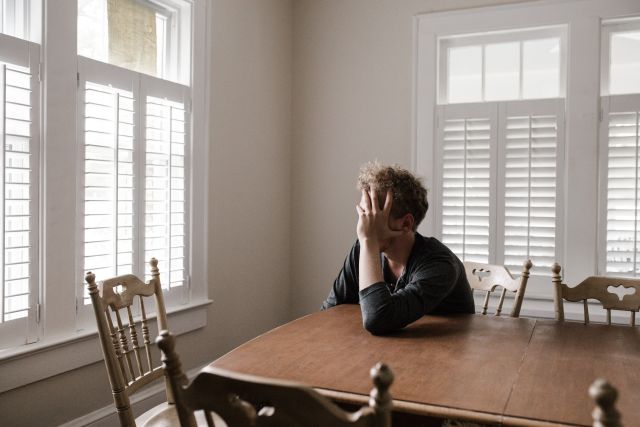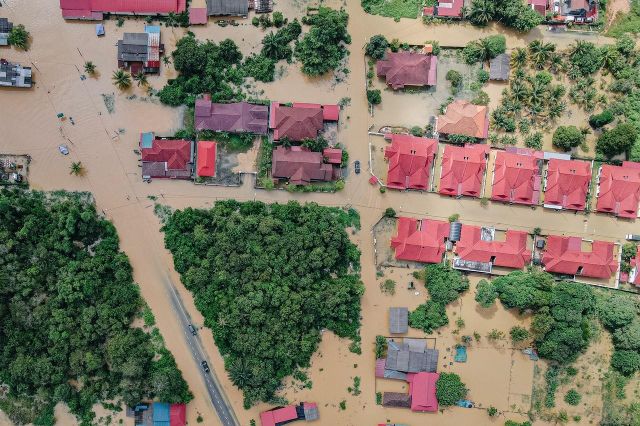What Risks Are There for Studying Abroad? And How to Mitigate Them
Studying abroad is great fun and a transformative experience, but it does also come with some risks. From illness to situations of discrimination and natural disasters, we’ve outlined the seven main risks you’ll be taking when relocating to a foreign country and the best ways to mitigate those risks.
International students are always exposed to more risks than domestic students, and the recent Covid 19 pandemic clearly showed this. When campuses closed and students were forced to return home, this was easy enough if they lived in that country, but for some international students, it was impossible due to travel restrictions or high costs of transportation.
Racism still leads to occasional attacks on foreign students (according to ICEF Monitor, Australia reported 152 attacks on Indian students in 2009) and foreign people, in general, are more likely to be targeted by criminals who see them as easy targets. Unfortunately, international students can also find some of their rights and freedoms taken away by political changes in the host country occurring after they started studying, despite enjoying those rights in their home country.
- You might fall seriously ill in a foreign country
- You might become a victim of crime
- Your mental health will be tested
- You might encounter discrimination
- You could be caught in the middle of a natural disaster
- You could end up losing your identification documents
- You might find yourself in an accident
You might fall seriously ill in a foreign country
Healthcare is an important part of our lives, and although we all wish we could be healthy all the time, sometimes we’re not. That’s why it’s important to have access to quality medical services, whether it’s for an emergency, a chronic disease, or just a bad cold. Moving to a new country can be scary and challenging, especially if you’re not familiar with their health system.
EU and Swiss citizens benefit from something called a European Health Insurance Card (EHIC) which means they are covered by the insurance in their home country and are entitled to healthcare services in all other EEA countries, as well as in Switzerland. However, these services don’t include dental care for example.
Students coming from outside Europe, on the other hand, do not have the same benefit and need to make sure they have valid insurance.

How to mitigate the risk
Get yourself well informed before you go abroad. Make sure you understand how the healthcare system in your destination country works and what you can do if you need medical assistance. You should also find out what is the Emergency phone number in that country. In Europe, for example, many countries share the same number: 112. To see them all, read this article.
Have valid medical insurance, whether it’s just the EHIC, or local insurance, or you opt for a full student insurance package which covers more things.
You might become a victim of crime
While some cities are safer than others, there’s no place on Earth without any crime. And it’s very likely that the further away from home you go, the scarier that place will seem to you. Often, we hear only the terrible stories, and we form an image in our heads which deforms reality. In this case, it’s important to keep our calm and think straight.
How to mitigate the risk
Use the same precautions as you would at home unless you know for a fact that you’re in a more dangerous place.
Learn about the city you will live in because every city has certain areas that should be avoided, especially at night.
Be culturally aware. Different countries have different cultural attitudes and behaviours. Some cities have a vibrant nightlife, for example, while in others is best to stay indoors or at least not wander alone at night.
Your mental health will be tested
You should maintain an awareness of your mental health if you’re going to study abroad. Being away from home is not easy. You’ll have to leave your friends and family behind and making new friends will take a while. You might feel isolated and even fall into depression.
Depending on how easily you adapt and how easily you communicate and form bonds with new people, the time you need to start feeling integrated will vary. What’s more, the country where you do your studies has a big impact as well. For example, if we’re thinking of Europe, it’s a known fact that Spanish people are very warm and affectionate straight away, while the Swedes on the other hand like to keep their distance more and it takes a bit longer to form close friendships.

How to mitigate the risk
Stay in touch with your friends and family from home. Talk to them daily, even if for just a little bit.
Force yourself to socialise in the new country, even when you don’t feel like it. Go to events organised by your university and the international society. It will be especially helpful to meet other foreign people.
Go out as much as possible. Visit the city, spend time in nature, ride a bike, exercise.
Know when and where to ask for help if you need it. Your university will have a system in place to offer mental health support to its students.
You might encounter discrimination
It is possible when relocating to a new country to face discrimination. The twenty-first century is a turbulent period and we’ve seen many unfortunate events unfolding even in societies we thought were beyond that. Crises like the pandemic, war, political tensions, and economic instability have a tendency of resurfacing old beliefs or making people search for culprits and fear those who are different. Even in democratic and open-minded societies like in European countries, you might face discrimination based on race, religion, gender, or sexual orientation.
How to mitigate the risk
Don’t engage in fights or arguments. Even though you feel upset and offended by what they said, the safest thing to do is to ignore them and avoid conflict.
Report these incidents through the right channel. If it happens in a hospital, at university, on the street, or over the internet, chose the appropriate medium and bring to light any abuse.
You could be caught in the middle of a natural disaster
Natural disasters can happen anywhere. While it’s true that certain regions of the Earth are more prone to it than others, there’s a risk no matter where you live. In Europe, the most common types of natural disasters are floods, storms, and earthquakes.
There’s not much we can do to avoid a natural disaster striking, but we can still take some measures of protection.

How to mitigate the risk
Get informed. Yes, I’ll say it again because information is power. Find out what kind of natural disasters can occur in your host country and what measures the country has in place. For example, in countries where earthquakes are frequent, you should pay attention to the kind of building you’ll rent.
Know the emergency phone number by heart.
Have student insurance which will cover your costs in case of getting hurt or having your personal items damaged.
You could end up losing your identification documents
It’s not too fun to find yourself in a foreign country without any identification. You’ll have to go to your home country’s Embassy, apply for a new passport or ID, wait for quite a long time, and probably pay a bit of money as well, especially if you opt for an emergency passport.
How to mitigate the risk
Keep your documents safe. You should always know where they are, whether you have them in your back pocket or safely deposited at home.
Make copies. Plenty of copies. Paper copies and digital copies. And, of course, don’t keep them all in the same place.
You might find yourself in an accident
The name says it all because as much as we try to stay away from accidents, they still happen. And when they do, we might get away with a scratch or we might be seriously injured. This can require immediate medical care or even the need to return home and postpone your studies.
While we can’t avoid them, it’s important to have that peace of mind that in case they happen, you’ll be well cared for. The best way for that is to have student insurance which can cover your expenses, from small medical interventions to permanent disablement and even accidental death.
How to mitigate the risk
Use preventive measures: always wear your seatbelt, never drive when drinking alcohol or ride with someone else who consumed alcohol, and always follow the safety instructions when enjoying different activities like hiking or swimming at the sea.
Know the emergency number. It can’t be said enough. And, of course, remember to charge your phone.
Choose a good insurance policy.
So, is it worth studying abroad after all?
It seems there are so many risks; is studying abroad worth taking them? Well, to be honest, we live with these risks every day of our lives, but we’re not aware of them most of the time. And that’s the difference: when you go abroad, you must be more aware and take proper preventive measures. But with good organisational skills and a bit of luck, you’ll have an excellent experience!




